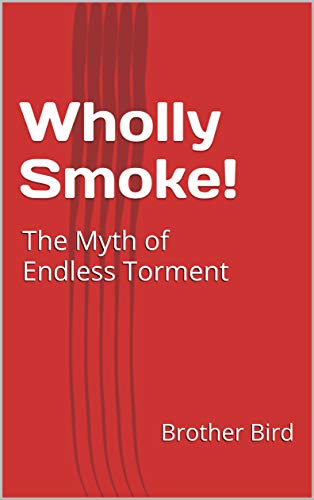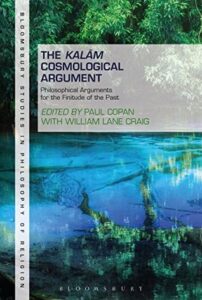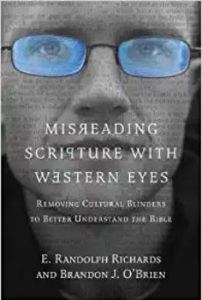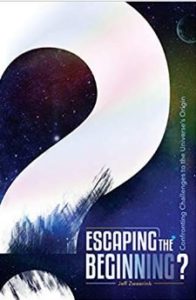“Wholly Smoke!: The Myth Of Endless Torment” by Brother Bird is an comprehensive, easily accessible defense of conditional immortality a.k.a annihilationism. Bird shows in chapter after chapter how the teaching that the damned are “destroyed” (Psalm 37:38, Psalm 94:23, 2 Peter 3:7, Jude 1:10), “perish” (John 3:16, 2 Peter 3:9), “burned up” (Matthew 3:6 12), are “destroyed in both body and soul” (Matthew 10:28), reduced to ashes like Sodom and Gomorrah, being made an example of what is to happen to the ungodly on the day of judgment (2 Peter 2:6, Jude 7), is found on virtually every page of The Bible. Whenever the final judgment of the wicked is talked about, it uses various different ways of saying the wicked will be destroyed. Bird quotes so many scriptures across the first 10 of its 36 chapters alone that I can’t envision someone not being convinced by the time they put it down! I say this as someone who is already a conditionalist/annihilationist. However, I think if I were a traditionalist when I read this book, I wouldn’t be anymore.
Bird leaves no stone left unturned. In chapter 1, Bird says that his “heresy” is believing John 3:16. John 3:16 says “For God so loved the world that He gave His one and only Son, that whosoever believes in Him will not perish, but have eternal life.” And in chapter 3, he does a word study of the word “perish” in both testaments to show that whenever it is used, it is consistently used to talk about a thing’s destruction or ceasing to be, specifically someone’s life coming to an end. Without exception, outside of The Hell debate, “perish”, “perishing”, “perished” and any other variations I might have missed always means to be killed, to die, to have one’s life come to an end. How odd then, that when it comes to John 3:16, we contort language so that “perish” doesn’t mean what it always means everywhere else? Instead, in THIS verse, “perish” means something like to undergo a never ending process of perishing in tormenting fire. This is not a straw man of eternal torment advocates. Having heard sermons on judgments for my whole Christian life, I’ve heard just this sort of rationale live and in person. Moreover, in my own book on Hell, “A Hellacious Doctrine” I quote people like Paul Helm and J.I Packer – reputable theologians, not quacks – who actually give this ridiculous explanation themselves! And alas, I myself rationalized the text this way for many years. Why? Because I felt I had to. Because “The Bible CLEARLY says”.
Well, actually, no. The Bible doesn’t clearly teach eternal consious torment. In chapter 5, Brother Bird talks about the problem of “assumed errors”. Bird says that a lot of the things Christians believe weren’t arrived at through careful exegesis or rigorous Bible study, but are simply presumed and then read into the text. We are told “The Bible says X” by our pastors, parents, favorite theologians and Bible teachers, and then we open our Bibles expecting to find X, and “Surprise! Surprise! Surprise!” to quote Gomer Pile. We find exactly what we are told we would find! Any passages of scripture that don’t line up with what our preacher or church told us The Bible says, we either label “problem passages” or we shrug our shoulders not knowing what to do with them. I’ve had many, many, many filters of traditions removed from my eyes on so many different topics; Genesis 1-3, eschatology, The Divine Council and Deuteronomy 32 worldviews in The Old Testament, and, of course, the doctrine of Hell. In fact, I credit the ease of which I changed my mind on the doctrine of Hell to two factors: (1) the sheer strength of the biblical evidence, and (2) the humility created in me by being proven wrong in so many other areas. When I had some arguments with conditionalists friends on Facebook, and I found myself unable to defend eternal torment (because I handled the proof texts I frequently appealed to honestly), my thought was “Well, I was wrong on so many other issues. Maybe I got this wrong too.”
My reaction regarding the doctrine of Hell when I discovered what The Bible REALLY taught was this “How in the world could I have missed this? It’s so obvious!” Because in some cases, The Bible so clearly and unambiguously contradicted what I was taught that I was left baffled how I could have read The Bible cover to cover multiple times and missed it. Presuppositions are a powerful, powerful thing. Filters of tradition can make you blind to what’s staring you right in the face.
In this chapter, Bro Bird asks and answers the question “How could we have been so wrong for so long?” by recounting his own spiritual and intellectual journey. He goes over some of the texts that pricked his mind and caused him to doubt whether eternal torture was really biblical. He then brought up the common proof texts of eternal torment and gave brief and quick answers to them that he would go on in later chapters to unpack in much more detail. Mark 9;48, Revelation 14, Revelation 20:10, and Matthew 25:45-46. Bird shows how, when the Old Testament context of these verses is properly understood, they actually prove EXACTLY THE OPPOSITE of what the traditionalist is trying to prove!
For example, Mark 9:48 talks of being cast into Hell “Where their worm does not die and the fire is not quenched”. However, in this verse, Jesus is alluding to Isaiah 66:24. When you read Isaiah 66:24 (and the whole passage by the way), what you actually find is Isaiah talking about the day of The Lord, final punishment, in which the Lord would come and SLAY his enemies, and in verse 24, the DEAD BODIES of the wicked are being eaten up by worms and being consumed with fire. Isaiah does not have people being tormented by worms constantly eating them with fire that burns their flesh causing them agony. Isaiah say the wicked will be killed, and, having been killed, their corpses will be burned, eaten by maggots, and they will be an abhorrence to the righteous. Traditionalists rip Mark 9:48 out of its context and zombify Isaiah’s corpses, and paint a picture that the biblical authors would find utterly foreign!
Some Criticisms
This book is excellent, but it’s not without it’s flaws.
Conclusion
I think this is a pretty good book. I think there are better ones out there on this subject, such as Edward Fudge’s “The Fire That Consumes” and “Rethinking Hell: Readings In Evangelical Conditionalism”, mainly due to avoiding the issues I found with this one (e.g zeroing in on the Greek and not focusing on KJV English), to the person new to the final fate debate, this is a good introduction to the issue.
90% of my criticisms have to do with HOW the content was presented, not the content itself. I think Bird makes a compelling case for annihilationism.
Share this:
- Share on Facebook (Opens in new window) Facebook
- Share on X (Opens in new window) X
- Print (Opens in new window) Print
- Email a link to a friend (Opens in new window) Email
- Share on Pinterest (Opens in new window) Pinterest
- Share on Reddit (Opens in new window) Reddit
- Share on LinkedIn (Opens in new window) LinkedIn
- Share on Tumblr (Opens in new window) Tumblr
Discover more from Cerebral Faith
Subscribe to get the latest posts sent to your email.





While I have not read this book I can say that it must have one major flaw. If it comes to the conclusion that the lost are annihilated then how does it deal with Rev 19:20, Rev 20:10, 14, 15, Rev 21:8. These verses lay out clearly that the lost will be in the lake of fire along with the beast, false prophet, devil, death and Hades. The lost are in hell because they refuse to place their trust in Jesus the Christ, this is the unpardonable sin. As long as they refuse to turn to Christ in faith they sin thus deserve to be there.
This book definitely does look at those passages. As does my book “Yahweh’s Inferno: Why Scripture’s Teaching On Hell Doesn’t Impugn The Goodness Of God”, and so does Edward Fudge’s “The Fire That Consumes”. If it didn’t, I wouldn’t even recommend at all. Not dealing with the two major ECT proof-texts would be akin to writing a book arguing against Calvinism and not devoting some time to Romans 9. No respectable book on conditional immortality could ignore these.
Although you are correct to point out that Fudge and the Rethinking Hell people have put out more thorough studies into Greek exegesis and the historical development of doctrine, yet I think that Bro Bird’s “Wholly Smoke” offers something that these other books don’t give. He doesn’t write to theologians in such a way that ordinary people who are not theologians may find to be tedious and exhausting. His book is not only clear and sound Bible teaching, but it is entertaining and witty, and enjoyable to read . When you want to see what the Bible plainly says, and not get bogged down with linguistic and historical minutia, “Wholly Smoke” is superb. And, though you wish that the author had gone more into the Greek and Hebrew, instead of the KJV Bible, I have not seen one place where he misinterprets the language of the Scriptures or relies on a mistranslation of the original text. My opinion is that this book fills a need for a very convincing argument that is much easier to follow than most others.